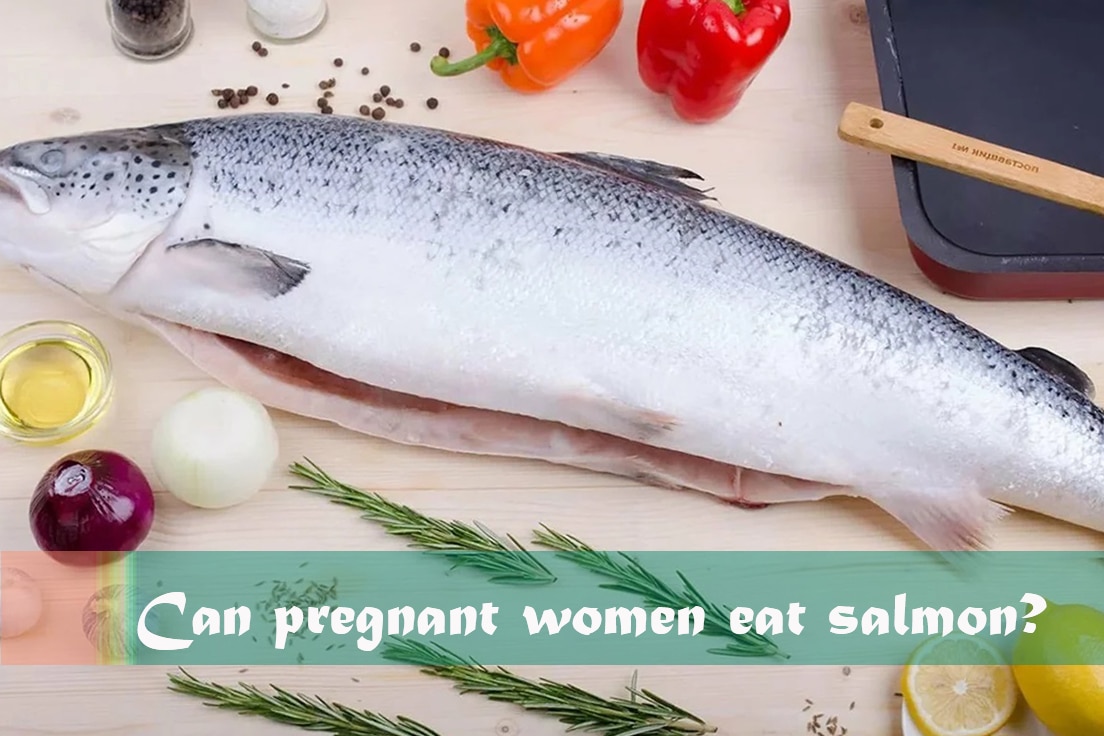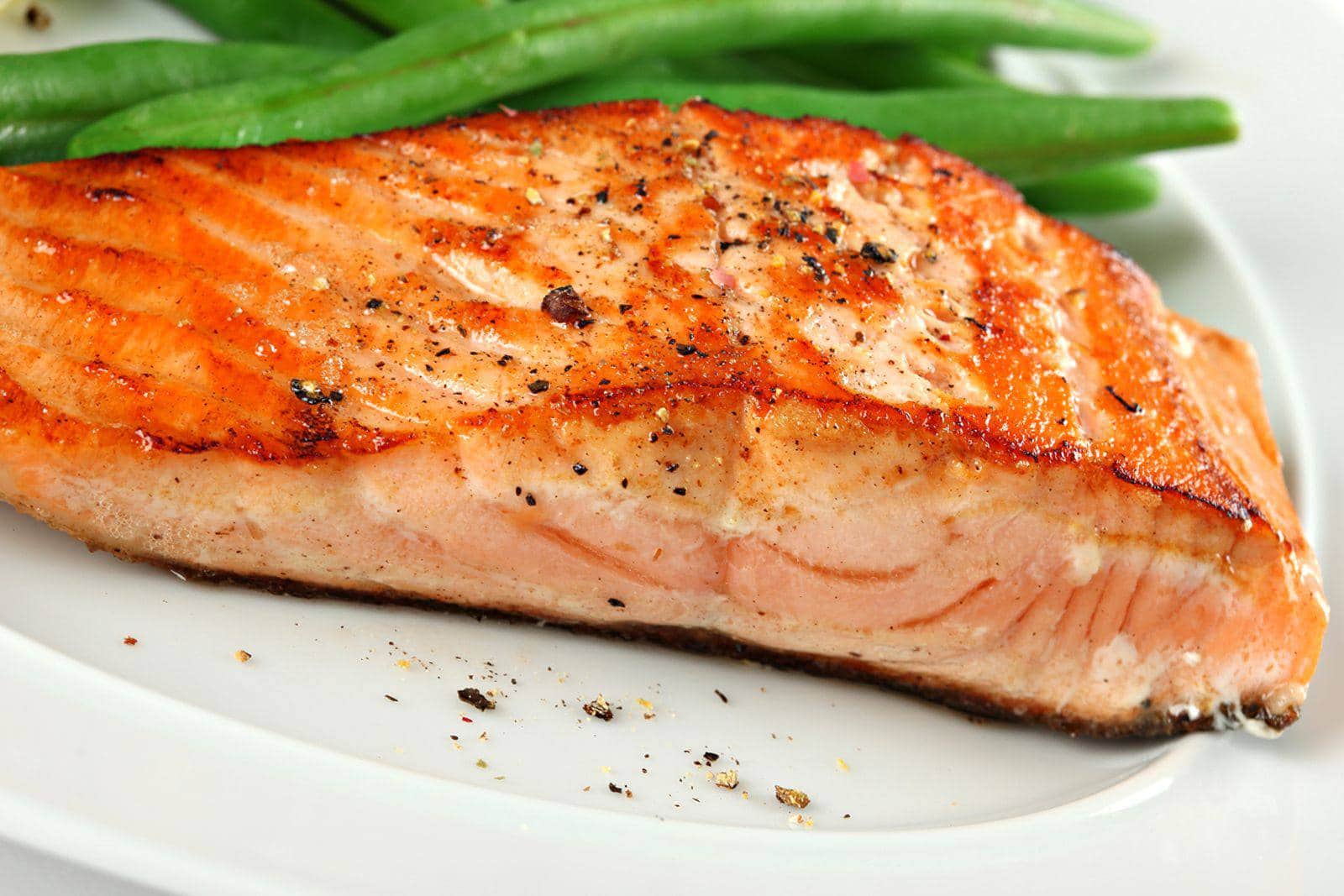can pregnant women eat salmon
Can pregnant women eat salmon? Is it safe?
Pregnant women often have questions about their diet and which foods are safe to consume. One common question is whether it is safe for pregnant women to eat salmon. Let's explore this question and provide comprehensive answers to some of the most frequently asked questions regarding salmon consumption during pregnancy.
1. Is salmon safe for pregnant women?
Salmon is generally safe for pregnant women to consume, and it can even have several health benefits. However, it is essential to take certain precautions to ensure the safety of both the mother and the baby.
- Include salmon as part of a balanced diet: Eating a variety of nutrient-rich foods during pregnancy is important, and salmon can be a healthy addition to the diet.
- Choose low-mercury options: Some types of fish, including certain species of salmon, contain lower levels of mercury compared to other seafood. Opt for wild-caught salmon or choose farmed salmon that is certified as low in mercury.
- Cook salmon thoroughly: It is crucial to cook salmon properly to eliminate any potential bacteria or parasites that could harm both the mother and the baby. Ensure that the salmon is cooked to an internal temperature of 145°F (63°C).

2. What are the benefits of eating salmon during pregnancy?
Eating salmon during pregnancy can provide several benefits for both the mother and the baby:
- Omega-3 fatty acids: Salmon is a rich source of omega-3 fatty acids, specifically EPA and DHA. These fatty acids play a crucial role in the development of the baby's brain and eyes.
- Protein and essential nutrients: Salmon is a good source of high-quality protein, vitamin D, vitamin B12, and other essential minerals that support overall health during pregnancy.
- Reduced risk of preterm birth: Some studies suggest that regular consumption of omega-3 fatty acids from fish, such as salmon, may help reduce the risk of preterm birth.

3. How much salmon is safe to eat during pregnancy?
Consuming a moderate amount of salmon during pregnancy is generally considered safe. However, it is important to follow guidelines and recommendations:
- Limit mercury intake: The Food and Drug Administration (FDA) advises pregnant women to consume no more than 8-12 ounces (226-340 grams) of low-mercury seafood per week, including salmon.
- Spread out consumption: Instead of consuming large amounts of salmon in one sitting, it is advisable to have smaller servings spread throughout the week.
4. Can eating raw salmon during pregnancy be harmful?
Consuming raw or undercooked salmon during pregnancy can pose certain risks:
- Potential bacterial and parasitic infections: Raw salmon may contain bacteria, such as salmonella, or parasites that can cause foodborne illnesses. It is recommended to avoid raw or undercooked fish during pregnancy.
- Higher risk of mercury exposure: Some types of salmon may contain higher levels of mercury, which is harmful to the developing baby's nervous system. Cooking salmon adequately helps eliminate this risk.
5. Are there any risks associated with eating salmon during pregnancy?
While salmon is generally safe to consume during pregnancy, there are a few considerations to keep in mind:
- Mercury content: Some types of salmon may contain higher levels of mercury, which can be harmful to the baby's development. It is crucial to choose low-mercury options and consume salmon in moderation.
- Allergies or sensitivities: Some individuals may have allergies or sensitivities to fish, including salmon. If you experience any adverse reactions after consuming salmon, it is advisable to consult a healthcare professional.
6. Can pregnant women eat smoked salmon?
Smoked salmon is generally safe for pregnant women if it is properly prepared and consumed in moderation. However, certain precautions should be taken:
- Choose high-quality smoked salmon: Opt for reputable brands or sources that follow proper smoking techniques to minimize the risk of bacterial contamination.
- Avoid homemade or uncooked smoked salmon: Homemade or uncooked smoked salmon can carry a higher risk of bacteria and parasites.
- Limit intake due to potential sodium content: Smoked salmon can be high in sodium, so it is important not to consume excessive amounts, as it may contribute to increased blood pressure.
7. Are there any alternatives to eating salmon for pregnant women?
Absolutely! If you prefer or if you cannot consume salmon, there are other options to obtain similar benefits:
- Omega-3 supplements: If you do not consume fish or have dietary restrictions, omega-3 supplements derived from algae can provide the necessary DHA and EPA.
- Other low-mercury fish: There are various low-mercury fish, such as trout, sole, catfish, and sardines, that can be added to your diet.
- Plant-based sources of omega-3: Chia seeds, flaxseeds, and walnuts are good sources of plant-based omega-3 fatty acids.
8. Can eating salmon affect the baby's development?
Eating salmon in moderation as part of a balanced diet is unlikely to negatively affect the baby's development. On the contrary, it can provide important nutrients and omega-3 fatty acids necessary for the growth and development of the baby's brain and eyes.
9. Can salmon consumption during pregnancy prevent allergies in the baby?
While there is ongoing research on this topic, there is insufficient evidence to support the claim that consuming salmon during pregnancy can prevent allergies in the baby. However, a healthy and varied diet during pregnancy is beneficial for both the mother and the baby's overall health.
10. Can pregnant women eat raw salmon in sushi?
Raw salmon, including sushi, should be avoided during pregnancy. Sushi may contain raw fish that could expose the mother and the baby to harmful bacteria or parasites. It is recommended to choose fully cooked or vegetarian sushi options instead.
11. Does cooking affect the nutritional value of salmon?
Cooking methods, such as baking, grilling, or steaming, do not significantly affect the nutritional value of salmon. It still remains a good source of omega-3 fatty acids, protein, and various essential nutrients.
12. Can pregnant women eat canned salmon?
Canned salmon can be safely consumed during pregnancy, as long as it is from a reputable source and low in mercury. It is important to check the label and choose varieties that are packed in water rather than oil to avoid excessive calories or unhealthy fats.
13. What are the signs of food poisoning from salmon?
If salmon is not cooked properly or is contaminated, it can cause food poisoning. Common signs and symptoms include:
- Nausea and vomiting
- Diarrhea
- Abdominal pain or cramps
- Fever
- Headache
- Muscle aches
14. Can eating salmon during pregnancy improve mood?
The omega-3 fatty acids found in salmon have been associated with improved mood and reduced symptoms of depression. However, more research is needed to establish a direct link between eating salmon during pregnancy and mood enhancement.
Posting Komentar untuk "can pregnant women eat salmon"